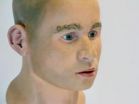Wakey, wakey!
Wake up refreshed with a brain-monitoring alarm clock
2011-10-22
(Press-News.org) We all know the feeling, the short, sharp shock of waking to the sound of an alarm clock. Whether the traditional clattering metal bells, the incessant beeping of digital or the dulcet tones of today's radio news reader. Even the chance to slap the snooze button to grab a few extra moments between the sheets does not leave everyone feeling refreshed when they finally crawl out of bed. Now, researchers in India think they have the answer.
Writing in a forthcoming issue of the International Journal of Biomedical Engineering and Technology, the researchers describe an alarm clock that monitors your brain activity and triggers its alarm within a time window you set in advance but only when your brain is in a more easily roused state rather than deep sleep. "By using such an alarm clock, the user will wake feeling much more refreshed than if they were awakened by a conventional alarm clock that rings at a set time," explains Jemina Asnoth Sylvia of Jerusalem College of Engineering in Tamil Nadu.
Sleep is a behavioral state that is a natural part of every individual's life. We spend about one-third of our lives asleep. Although the precise functions of sleep remain a mystery, sleep is important for normal motor and cognitive functions as well as growth and rejuvenation of the immune, nervous, skeletal and muscular systems. After waking naturally, we recognize changes that have occurred, as we feel rested and more alert. However, many people use an alarm clock to wake them at a set time, which is when problems occur for some of us.
The researchers point out that sleep usually involves 90-minute cycles of brain activity during which there are periods when the brain is most arousable. If a person is woken, from a night's sleep, during such an arousable period in the cycle, they will feel more refreshed than if they are woken during a deeper part of the sleep cycle. To take advantage of this requires putting EEG scalp electrodes on the head to monitor brain activity and to hook the output to a modified alarm clock. Once out of the experimental stage, the team envisages a head-band worn while sleeping that uses wireless electrodes.
In tests, the alarm time is set and the monitoring process is set to begin 90 seconds before the alarm time. An onboard computer determines what stage of their brain activity cycle the sleeper is in during the 90-second monitoring time. If they are in the 3rd or 4th stage of sleep, the alarm is "snoozed" automatically. However, if they are in stage 1 or 2 of sleep, the more arousable stages, the alarm is sounded to wake the sleeper.
The team adds that it is feasible to record brain activity during the night to obtain a so-called "hypnogram" to determine how well you are sleeping overall. This would allow you to adjust your alarm time so that the monitoring window coincided more often with stage 1 or 2. That might mean an earlier alarm call, up to 45 minutes earlier, but it would be a gentler more refreshed awakening. Of course, the converse would also be possible - a "snooze" or 45 minutes and an even more rested and refreshed awakening. Just don't blame the researchers if you are late for work!
INFORMATION:
"Alarm clock using sleep analysis" in International Journal of Biomedical Engineering and Technology, 2011, 7, 148-164
END
ELSE PRESS RELEASES FROM THIS DATE:
2011-10-22
Amateur athletes will be congregating in Phuket next month to take part in the Laguna Phuket Triathlon, which is to be held on November 27th this year.
Running for the last sixteen years, the event allows participants to put themselves to the ultimate physical test alongside top triathletes, while passing through striking tropical scenery.
Professionals such as Mark Allen, Greg Welch, Craig Alexander, Paula Newby-Fraser, Michellie Jones and Chrissie Wellington are among those who have taken part in past years.
The race starts with a 1.8 km swim from the beach, ...
2011-10-22
A book or a screen – which of these two offers more reading comfort? There are no disadvantages to reading from electronic reading devices compared with reading printed texts. This is one of the results of the world's first reading study of its kind undertaken by the Research Unit Media Convergence of Johannes Gutenberg University Mainz (JGU) in cooperation with MVB Marketing- und Verlagsservice des Buchhandels GmbH. "E-books and e-readers are playing an increasingly important role on the worldwide book market. However, readers in Germany are particularly skeptical when ...
2011-10-22
A healthy diet is especially important during the menopause – a period in which the risk of suffering from health problems increases. Various studies analyse the diet of peri- and postmenopausal women in Spain alongside the troubles that come with this transition. The results show that all of those groups studied have a deficient intake of vitamin D.
Marina Pollán, researcher at the Carlos III Institute of Health and one of the authors of the study explains that "biological and physiological changes in women caused by the menopause come with a greater risk of developing ...
2011-10-22
SDC and Party Erotique come together again to bring you "Party Erotique Dallas" at the Aloft Saturday, October 29th, 2011. Doors open at 9pm and *masks are required* for entry. The Aloft is located at 1033 Young St in downtown Dallas. Advance ticket purchases are only $30 and if purchased the day of the event $50.
Make it an Erotique Halloween Weekend and purchase a package starting at only $199 per couple. Packages include accommodations for two at Starwood's flagship Aloft Hotel, admission to afternoon educational seminars and demos, two tickets to Party ...
2011-10-22
"It will be the first non-destructive method. This means that measurements can be taken in closed packaging and the gas composition over time can be checked. This will make it possible to check a much higher number of products than at present", says Märta Lewander, Doctor of Atomic Physics at Lund University in Sweden.
Dr Lewander developed the technique in her thesis and now works as chief technical officer for the company Gasporox, which is commercialising the technology.
Today, spot checks are performed on individual samples, with the risk that damaged products ...
2011-10-22
"It is hoped that this reconstruction is a good likeness and that, if someone who knew him in life had been presented with this restoration, they would hopefully have recognised the face", says Jenny Barber, an MSc student at the University of Dundee in Scotland.
She has scientifically rebuilt the face of the strong and stocky Viste Boy, who lived in the Vistehola cave near Stavanger, so that people can now look him right in the eye.
Ms Barber is studying forensic art, an unusual discipline embracing such elements as human anatomy and identification in order to recreate ...
2011-10-22
Steel City Displays, a full service custom exhibit house located in Phoenixville, PA, is pleased to announce that their valued client Saint-Gobain's Creative Services Group, won a prestigious 2011 Graphic Design USA award.
Creative Services was honored for their design of the Saint-Gobain Corporate Communications display kiosks that were featured at the 2011 AIA (American Institute of Architects) Show. Steel City Displays designed and fabricated the custom built exhibits.
Commenting on the award, Bob Heck, President of Steel City Displays, said, "We are thrilled ...
2011-10-22
Sheep's head is not for wimps. Until now very few of us have been tempted by this traditional Norwegian dish.
"It's a pity, because you will really have to look far and wide for a more tasty traditional dish," says Professor Reidar Mykletun at the Norwegian School of Hotel Management at the University of Stavanger.
"With good potatoes, rutabaga mash, beer and aquavit sheep's head is a tempting experience for genuine lamb enthusiasts. But sheep's head is an example of a dish that is scary for many of us. With both ears, mouth, teeth, tongue and eyes looking at you from ...
2011-10-22
Culture is not a trait that is unique to humans. By studying orangutan populations, a team of researchers headed by anthropologist Michael Krützen from the University of Zurich has demonstrated that great apes also have the ability to learn socially and pass them down through a great many generations. The researchers provide the first evidence that culture in humans and great apes has the same evolutionary roots, thus answering the contentious question as to whether variation in behavioral patterns in orangutans are culturally driven, or caused by genetic factors and environmental ...
2011-10-22
A paper from the National Institutes of Health in the United States has evaluated the separate and combined effects of the frequency of alcohol consumption and the average quantity of alcohol drunk per occasion and how that relates to mortality risk from individual cancers as well as all cancers. The analysis is based on repeated administrations of the National Health Interview Survey in the US, assessing more than 300,000 subjects who suffered over 8,000 deaths from cancer. The research reports on total cancer deaths and deaths from lung, colorectal, prostate, and breast ...
LAST 30 PRESS RELEASES:
[Press-News.org] Wakey, wakey!
Wake up refreshed with a brain-monitoring alarm clock



